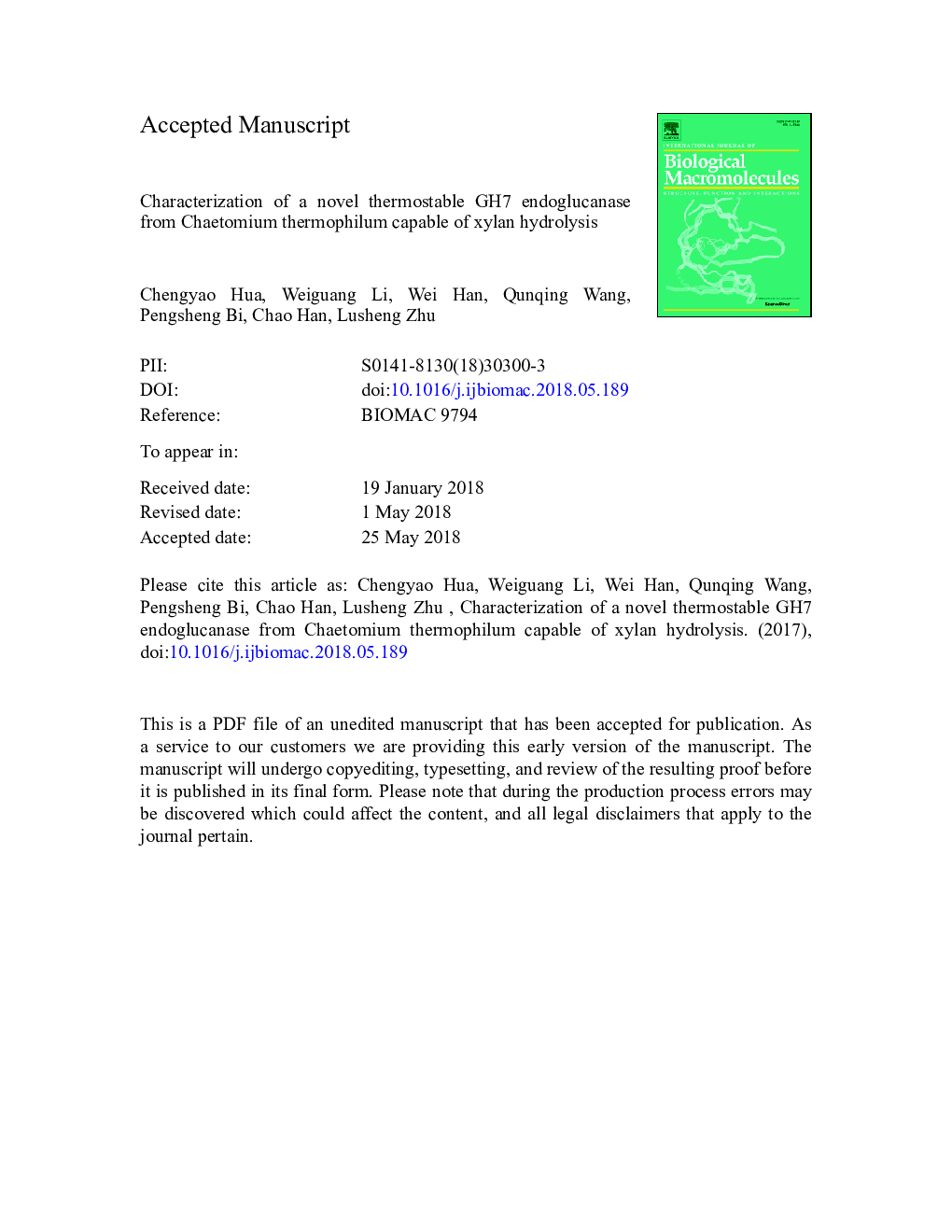| Article ID | Journal | Published Year | Pages | File Type |
|---|---|---|---|---|
| 8326952 | International Journal of Biological Macromolecules | 2018 | 35 Pages |
Abstract
A new endoglucanase encoding gene (ctendo7) was cloned from the thermophilic fungus Chaetomium thermophilum and heterologously expressed in Pichia pastoris. The recombinant CTendo7 enzyme was purified by Ni2+ affinity chromatography and subsequently characterized. CTendo7 belongs to glycoside hydrolase family 7, and exhibited considerable activity against sodium carboxymethyl cellulose (CMC-Na) and xylan of 1.91â¯IU/mg and 3.05â¯IU/mg at the optimum reaction condition of 55â¯Â°C, pHâ¯5.0, respectively. The purified enzyme displayed relatively good thermostability. The residual endoglucanase and xylanase activities were 74.3% and 66.2% after a 60â¯min pre-incubation at 70â¯Â°C. Additionally, Ag+, Fe3+ and Cu2+ negatively affected the enzyme's activity, while the presence of 1â¯mM and 5â¯mM Mn2+ significantly enhanced both endoglucanase and xylanase activities. Generation of soluble oligosaccharides from lignocellulose is a critical step in bioethanol production, and it is noteworthy that CTendo7 produced cello-oligosaccharides and xylo-oligosaccharides from the continuous enzymatic saccharification of CMC-Na and xylan, respectively. This is the first detailed report on a novel bifunctional endoglucanase/xylanase enzyme from C. thermophilum. Furthermore, the excellent properties of CTendo7 distinguish it as a promising candidate for industrial lignocellulosic biomass conversion.
Related Topics
Life Sciences
Biochemistry, Genetics and Molecular Biology
Biochemistry
Authors
Chengyao Hua, Weiguang Li, Wei Han, Qunqing Wang, Pengsheng Bi, Chao Han, Lusheng Zhu,
